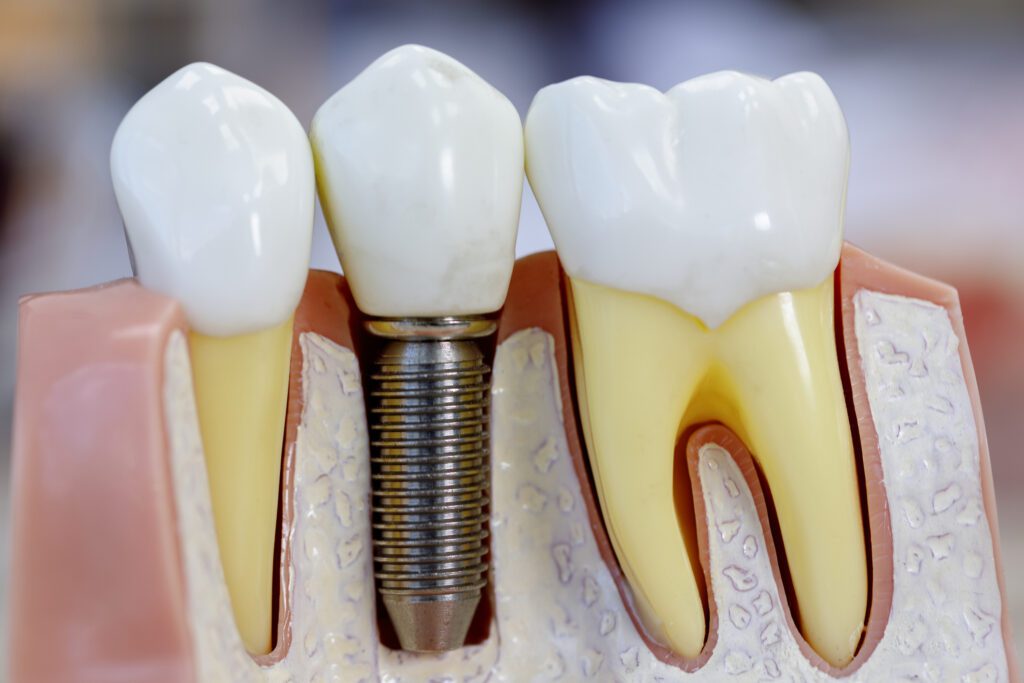Just one missing tooth can impact the health and stability of the whole smile. Tooth gaps can lead to shifting teeth, bite issues, tooth decay, and a myriad of dental and overall health problems.
If you have lost a single permanent tooth, a dental implant can replace the tooth at the root and provide a false tooth that looks and feels natural.
At Premier Dental Care, we offer single-tooth implants in our Lancaster and Palmdale, CA, dental offices. We also offer implant-supported bridges for multiple consecutive teeth and implant-secured dentures for rows or full arches of lost teeth.
Replacing a single missing tooth with a dental implant offers key benefits, including preserving your existing tooth structure and bite.
When using a dental implant, there is no need to degrade adjacent healthy teeth for placing a supporting dental crown, a typical part of the traditional dental bridge process.
A dental implant gives you a new tooth that supports natural biting and chewing, restoring your best quality of life with no dietary restrictions.

Implant-Supported Dental Crowns
Single-tooth implants replace the natural tooth root. When we place implants, we first place the titanium implant post in the jaw bone. Then, an abutment provides a foundation for the dental crown. After the implant fully heals, we will place a dental crown on the abutment.
Creating custom-made dental crowns ensures that the tooth looks and feels natural. Crowns are caps made of reflective porcelain materials that fully cover teeth or cap off implants.
Post-op care for dental implants includes a good oral hygiene routine and regular dental visits to keep the surrounding gum tissue and remaining natural teeth healthy.
Learn more about caring or your implants with this AAID education video:
Do I Need a Bridge or Dental Implant?
A traditional dental bridge replaces one or more missing teeth. Patients can receive a bridge even if they only have a single lost tooth. Dental bridges use natural teeth adjacent to a tooth gap to secure false teeth. Bridge treatment requires dental crowns to cap off natural teeth.
However, natural teeth require preparation for dental crowns. Bridges are only preferable if the teeth adjacent to a missing tooth have sustained damage. Otherwise, it is unnecessary to place crowns on healthy teeth.
While dental crowns restore the smile’s appearance, implants can offer more benefits to patients over a dental bridge. Dental implant posts replace missing teeth at the root, meaning they function and feel like natural teeth.
Although dental implant treatment will take longer, many patients benefit from improved speaking, eating, and oral health. Dental implants replace teeth at the root, meaning patients enjoy speaking and eating more naturally.
Discover more about dental implant treatment on our website:
Receive Implant Treatment Today
Call Premier Dental Care’s Lancaster office at (661) 948-6700 or the Palmdale office at (661) 273-6565.
You can also schedule a dental appointment in our Lancaster office online here or request an appointment in our Palmdale office.
